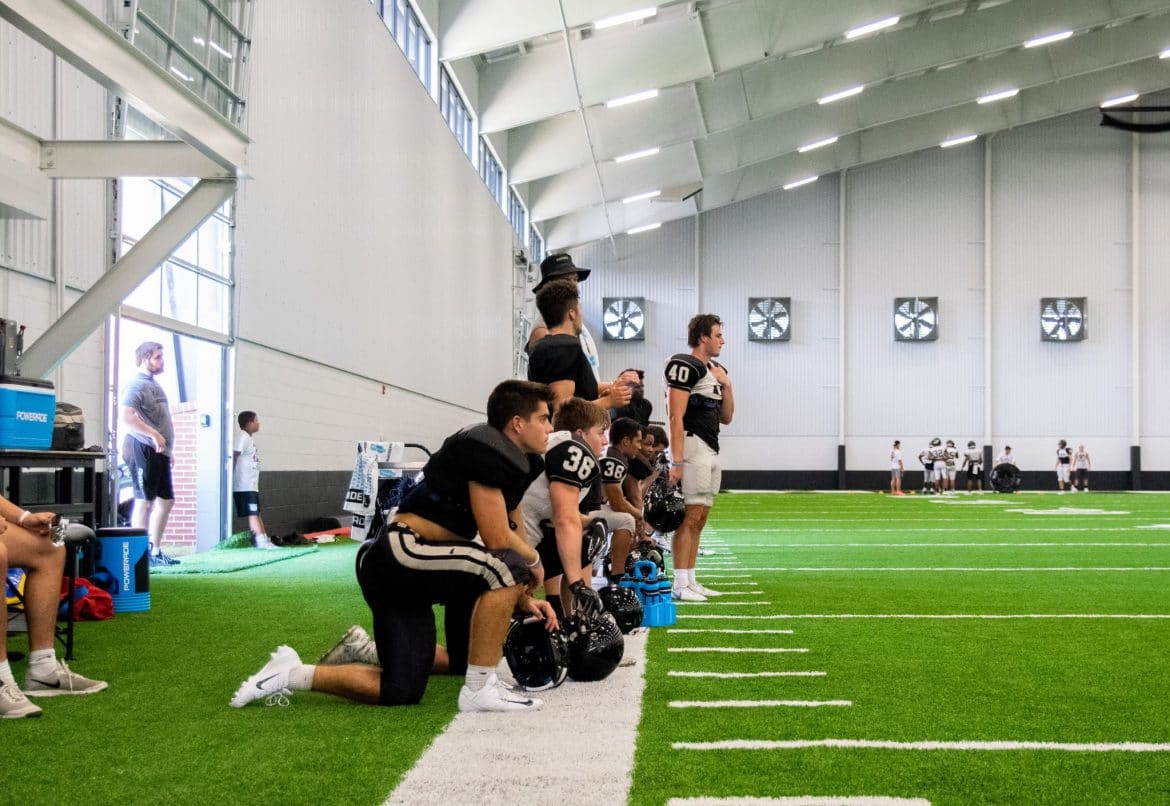Reality is often disappointing, and this is certainly true with the announcement of Andrew Luck’s retirement on Aug. 25. At only 29 years old, the Indianapolis Colts quarterback stepped down, saying, “I haven’t been able to live the life I want to live.” A laundry list of injuries and the pain and long recovery time from each of them made his career less fulfilling. “It’s taken the joy out of this game” he said.
Indianapolis Colts fans were furious at the disheartening news and booed Luck as the announcement was made. They had reason to be mad since last season was one of the first seasons that Luck started in a while. He showed serious promise, bringing the Colts from a 4-12 fiasco of a season in 2017 to a miracle 10-6 record this past 2018 season. Luck could have easily been one of the most prolific and well-established quarterbacks this season, but he had the maturity to realize he wasn’t willing to keep hurting himself to keep the dream alive.
Luck wasn’t the only player to retire at a shockingly young age. 30-year-old former New England Patriots tight end Rob Gronkowski announced his retirement on March 24, 2019. This was one of the most surprising retirements, since he was a player who was able to put up unbelievable numbers in his games and was a three-time Super Bowl champion. Gronk also sustained a number of injuries in his career, but he was never the sort of player you would have expected to retire. However, he too acknowledged the toll that his injuries had on his love for the sport.
“I needed to recover,” Gronkowski said “I was not in a good place. Football was bringing me down. And I didn’t like it. And I was losing that joy in life. I was fighting through it. And I knew what I signed up for, and I knew what I was fighting through, and I knew I just had to fix myself.”
Despite regulations to make football a safer contact sport, there is still a long list of injuries at the end of each week. These injuries range from minor sprains to career-ending injuries, and we tend to view some of these as minor things that will heal. Even I hear reports of injuries and shrug it off because I just assume that they will be back in two weeks or so. So my question is, what happens when a dream is officially over?
This isn’t something that just happens in the college or professional level, as I have seen so many of my friends throughout high school sustain injuries that kept them from their dreams outside of football. I had a friend who wanted to be a U.S. Marine after high school, but those dreams were cut short due to an injury sustained to his knee in practice one day. Another friend was put in a cast a week after getting another one removed. All these people had such high hopes for their futures, but the joy and hope was lost after these injuries because their dreams were tied to their sport.
I think a big problem that we tend to have, especially in American culture, is that we focus on what we are good at, and what we’re good at usually ends up becoming related to our dream. When you’re born, you’re not inherently good at anything. What happens is you get exposed to a certain thing like scribbling as a 2 year old or throwing a baseball with your parents at the age of 3, and that continual enjoyment and satisfaction is what encourages us to pursue our dream.
So I have a challenge: Try something new. Try something that you have never done before. Maybe you’ll enjoy it, maybe you’ll develop a new dream. Do something that you think you’re bad at. We tend to be set in our desires, but Jeremiah 29:11 says, “For I know the plans I have for you,’ declares the LORD, ‘plans to prosper you and not to harm you, plans to give you hope and a future.” When one door closes, another one opens. I think Andrew Luck knew this, and I hope you do too.
